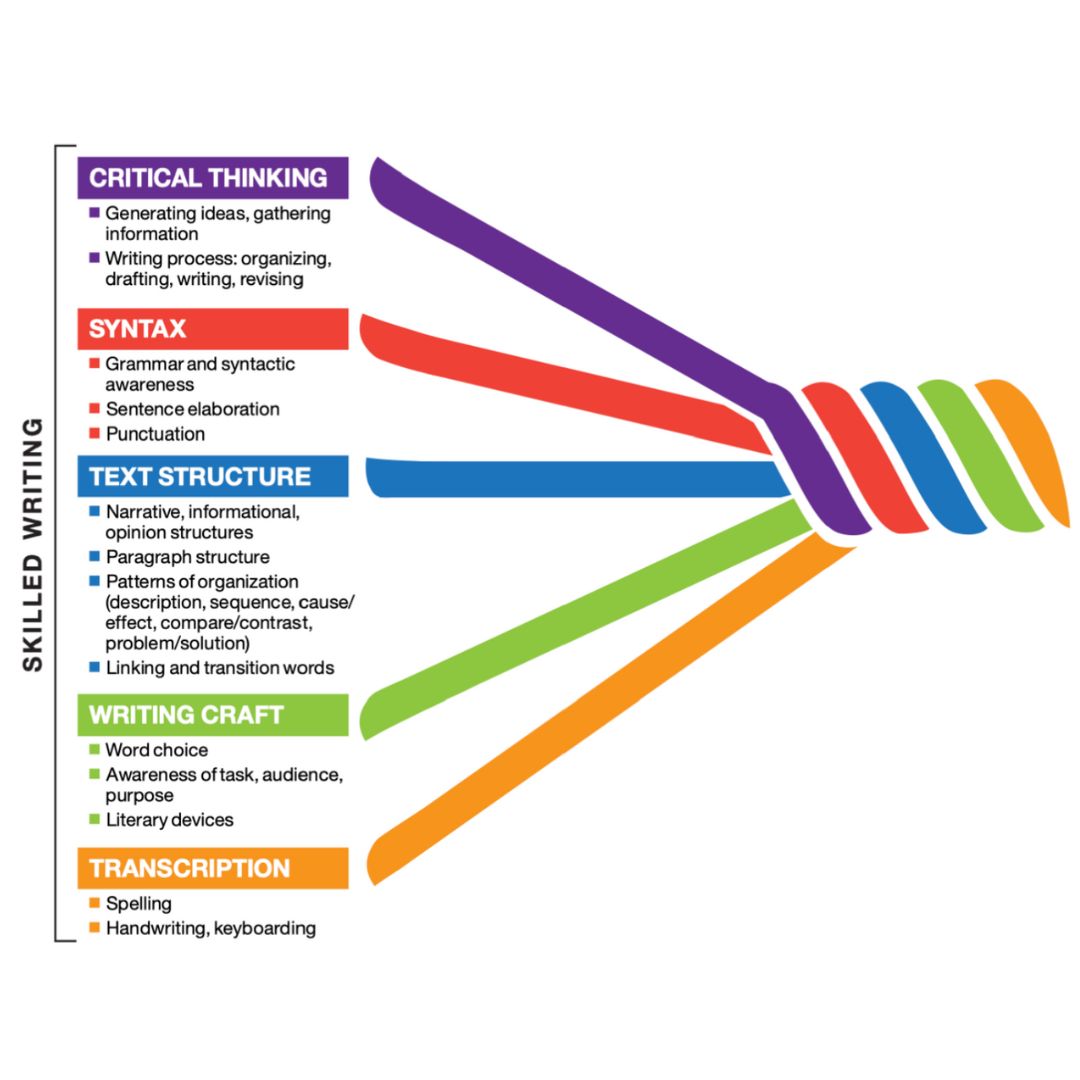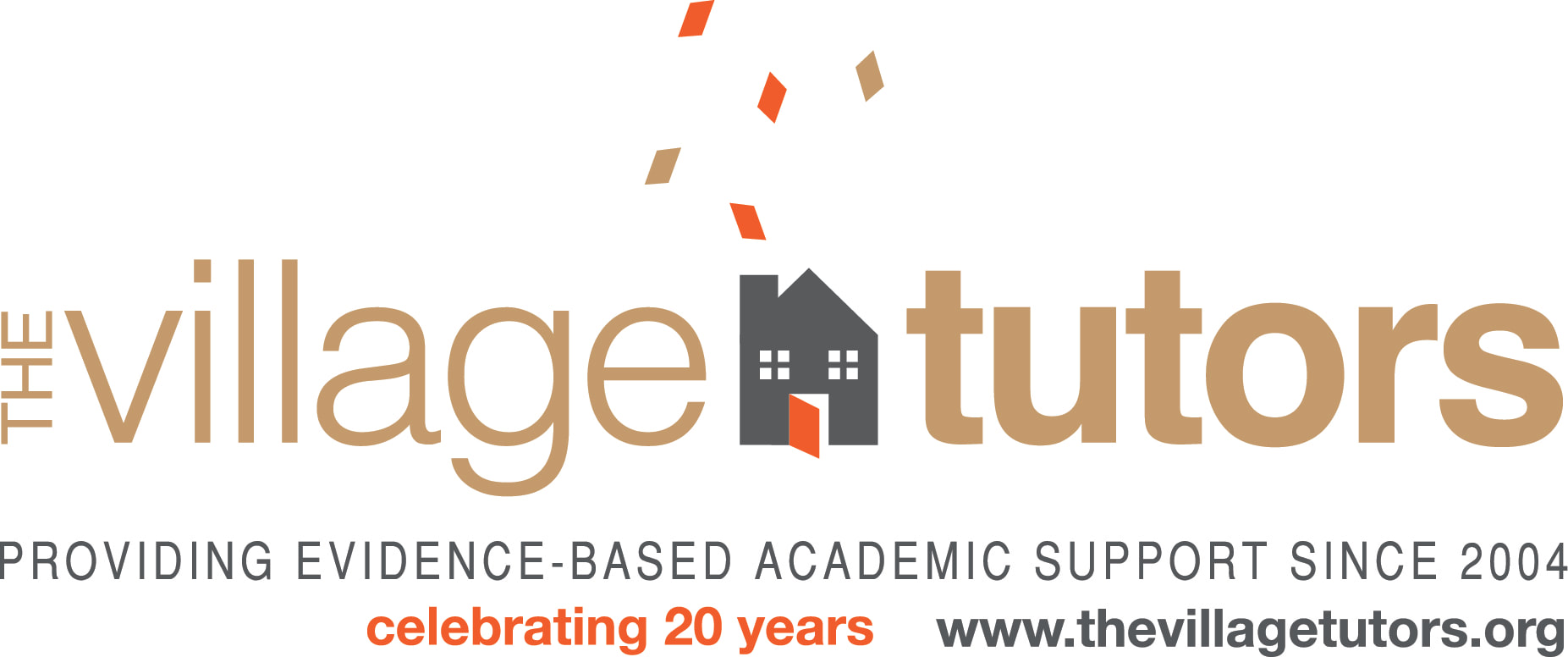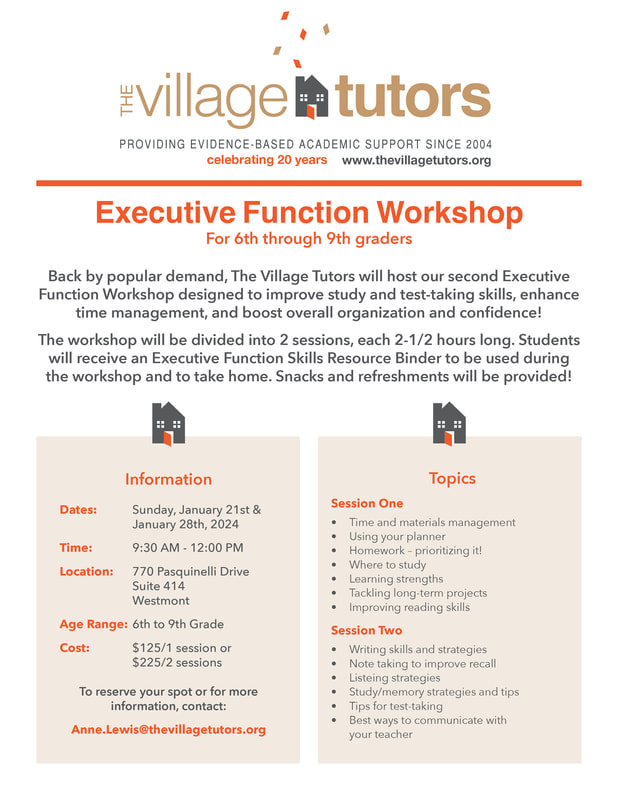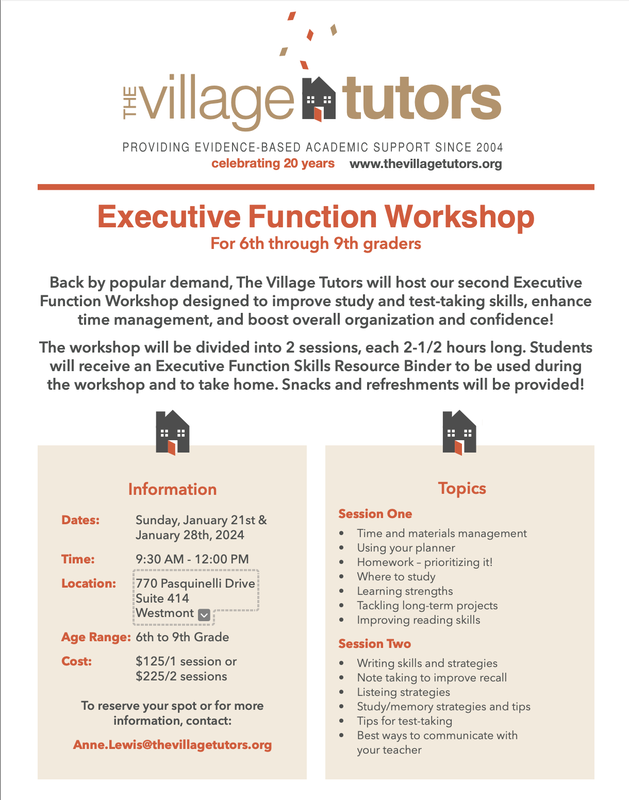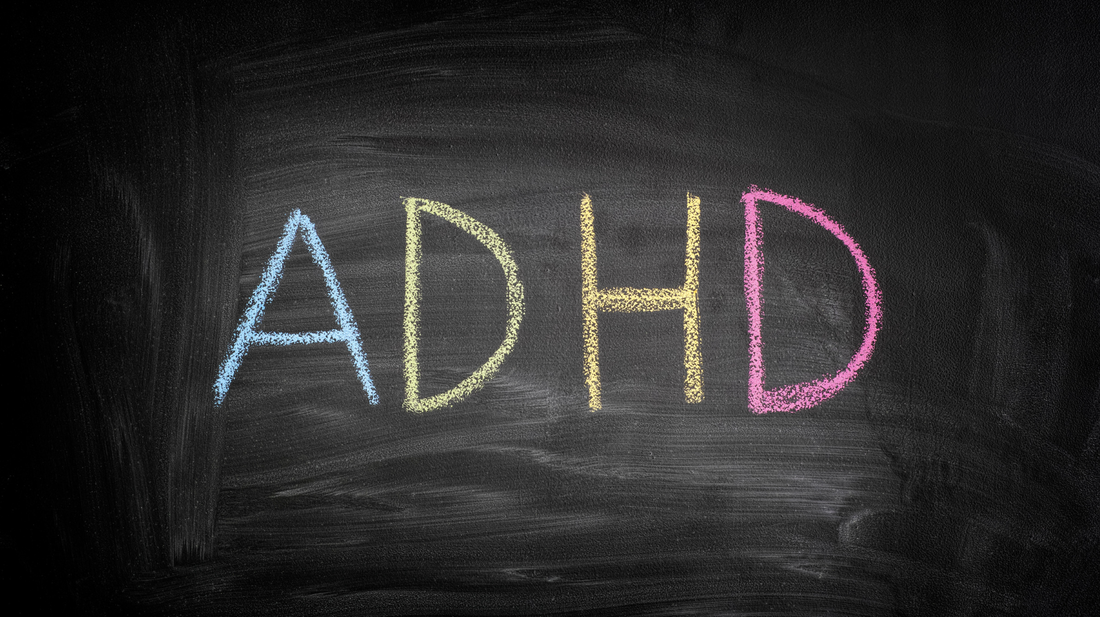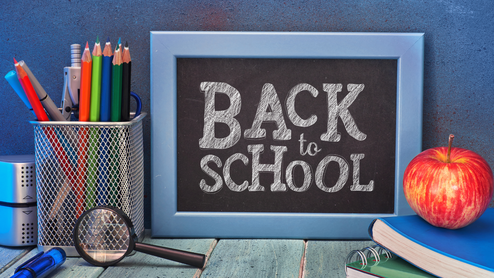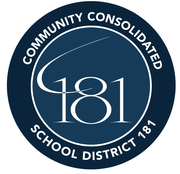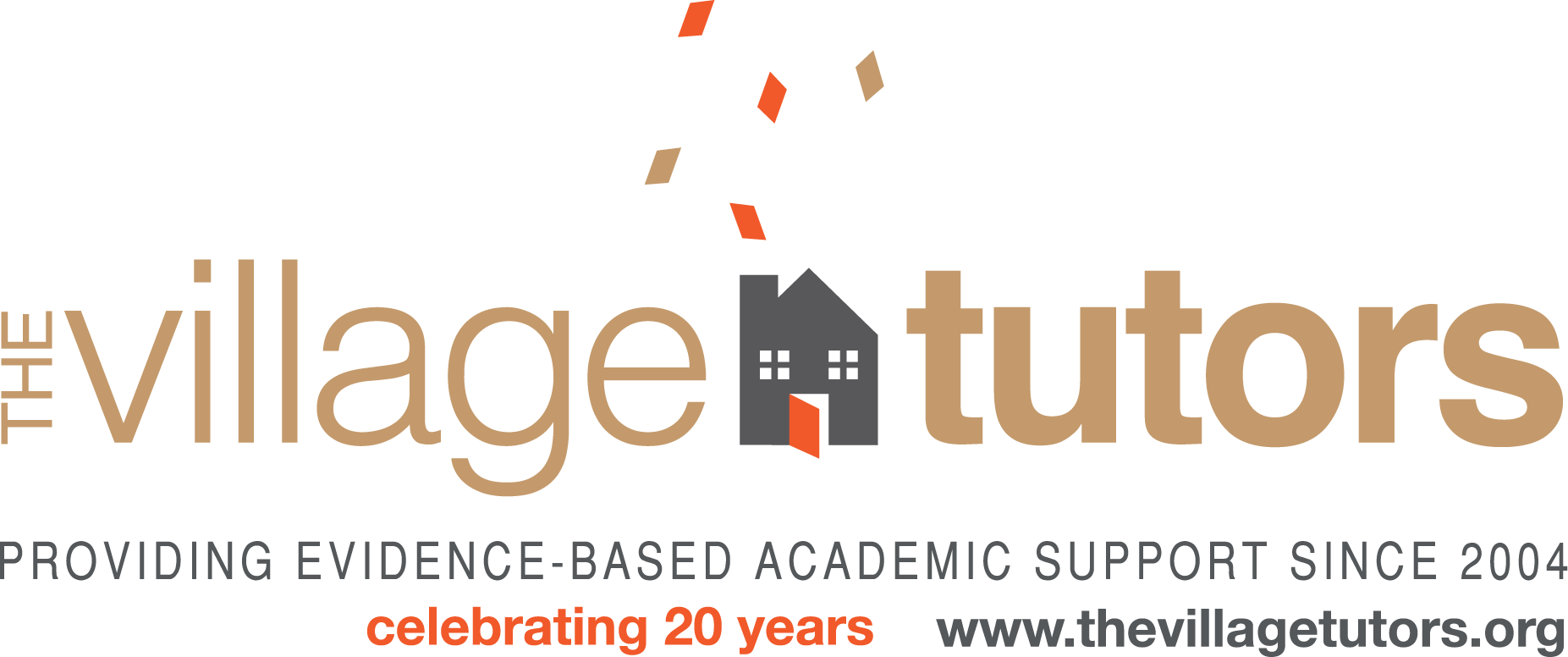|
“Ideas are like rabbits. You get a couple and learn how to handle them, and pretty soon you have a dozen.”- John Steinbeck, Noble Prize Author This month we’re sharing insights on overcoming writing challenges from some of our very own writing experts at The Village Tutors “Good writing helps a student communicate clearly and effectively. That’s not all. Writing also serves as a cornerstone of learning. It can improve a student’s ability to organize thoughts, encourage deeper engagement with information, and help connect the dots between ideas.” - Kate O'Reilly, The Village Tutors The Village Tutor, Marjean Gonzalez shares that “Many students groan when they receive a writing assignment. I often hear, “I don’t know what to say!” It doesn’t help that the accompanying rubric for grading the assignment can look quite intimidating. However, I find that, once I start talking with the student about the topic, they have plenty of ideas; the problem is, their ideas are jumbled up, not thought out completely, and not organized. My job as a tutor is to help students examine texts, and examine their own thinking about the texts or topics. Brainstorming out loud is a great place to start, followed by jotting thoughts down on paper, and then organizing those thoughts into paragraphs.” Marjean continues, “In language development, writing is the last and highest skill to be developed. Think about going to a foreign country without having studied the language prior to your trip. By the end of the first week, you can pretty much understand the gist of conversation, but you might not feel confident to speak the language, and you certainly wouldn’t feel comfortable writing in a new language! It’s the same for students. Children benefit greatly from having discussions, and the one on one tutoring setting is an ideal place for students to be skillfully guided in discussion of their topic, questioned for the purpose of developing their thoughts, and then, to experience the power of writing to express their thoughts. Parents can encourage this writing process by looking for ways to have casual discussions on a variety of topics.” Writing Resources We highly recommend "The Writing Rope: A Framework for Explicit Writing Instruction in All Subjects" by Joan Sedita. This was inspired by Hollis Scarborough’s “Reading Rope”. This “rope” metaphor can be used to depict the many strands that contribute to fluent, skilled writing and focuses on five fundamentals of a comprehensive writing curriculum. This article shares the basics on the five key strands and how to provide explicit instruction for each strand:
Another one of our favorite resources at TVT to support writing is “The Writing Revolution” co-authored by Education Journalist, Natalie Wexler. The Writing Revolution’s evidence-based strategies ensure that all students at all levels can produce clear, coherent, unified, and structured writing. The Writing Revolution offers implicit instruction on how to help your students:
Our team is expertly trained to support students with writing, and we welcome the opportunity to work with you and learn more about your needs. Contact us today to get started, as we look forward to developing a customized plan for you. Throughout the past 20 years, our TVT team has seen first hand how impactful cultivating a strong student-tutor relationship is for student success. We emphasize private and specialized tutoring, where there is opportunity to develop a deep sense of trust and understanding.
As Yale professor, David Brooks, quoted in the The New York Times: Students Learn From People They Love - Putting relationship quality at the center of education: “Children learn from people they love, and that love in this context means willing the good of another, and offering active care for the whole person.” Our tutors have experienced this first hand as TVT tutor, Kate Vogts shares: “Building a strong relationship with a student is one of the most important and beneficial aspects of one on one tutoring. Having the chance to interact solely with that student, allows you to learn about them personally, what their interests are and where their strengths lie. Building a nurturing relationship with a student lets them know that you are invested in them as a person, not just as a student who is with you to learn. The best part is when they tell their parents they like coming to see me or that hour went by so fast. You can see their pride when you give them positive feedback about what they are accomplishing.” - Kate Vogts Research has proven that since each student has a different learning style, identifying a student’s strengths and challenges first is critical to developing a strategy and effective tutoring plan. Brighterly shares, The Benefits of One on One Tutoring for Kids’ Development including: a personalized learning experience, opportunity for students to master topics before moving forward at their own pace and targeted academic support. Additionally, one on one tutoring provides mentorship that can extend beyond academics, positively impacting other aspects of a student’s life and personal development. TVT tutor, Kaitlyn Ferrara shares how cultivating a nurturing relationship with students offers increased success: “My goal as a tutor is first and foremost to foster a strong connection with my students. Getting to really know who they are, what excites them and how they absorb and process information is key to our success in working together. This allows them to be themselves, open up and feel comfortable and confident in our learning environment. I strive to have a long term impact on each of my students, teaching skills that will not only help them with their immediate academic challenges but to also serve as a foundation for the future. My high school tutor had such a profound and positive impact on my life - I am grateful for our connection to this day. She inspires me to do the same with my students." - Kaitlyn Ferrara At The Village Tutors, our founder, Suzanne Petree speaks with each family directly to learn about the student before thoughtfully pairing them with a tutor who can best support their academic goals and develop a meaningful relationship. We firmly believe that with evidence-based support, along with compassion, connection and kindness, all students can discover their academic potential. Our team is expertly trained to support students and their families, and we welcome the opportunity to work with you and learn more about your needs. Contact us today to get started, as we look forward to developing a customized plan for you. 20 years-simply incredible! We are so thankful to have achieved this milestone!
The Village Tutors team is one that truly “gets it.” We understand the nuanced world of education - filled with unique educational journeys, learning challenges, tailored academic programs, and so much more. As we reflect on the past 20 years, our mission remains the same-to meet your student where they are. We make every effort to meet the needs of each student and family. Here is one of our favorite stories to share: We helped to ease the mind of a parent looking for help with their third grader who could not read, but could memorize the numbers of every player on the Hinsdale Central football teams. TVT worked compassionately and diligently to support this student. He is now a 31 year old, successful college graduate and business professional who is thriving personally and professionally. Through our collective teamwork, we are able to significantly impact our students’ academic outcomes. We like to remind families that the tutor-student relationship really is the most important part of the puzzle. This relationship is paramount to success. Our tutors are THE reason why TVT has grown over the past 20 years-their long term commitment has allowed the business to flourish and thrive. Personal and professional referrals are the foundation of The Village Tutors and are the highest compliment we can receive. Here’s to the next 20 years, and to the bright future ahead of us. We are honored to be a part of your stories…thank you for sharing this exciting journey with us. Suzanne If you have a 6th - 9th grader who may benefit from additional support in the area of Executive Function, see our Workshop flier below. We have two sessions running soon (January 21st and January 28th), and we would love to have your student join! Do you ever hear comments like these from your student?
What is Executive Function? According to Understood.org, executive function is a set of mental skills that include working memory, flexible thinking, and self-control. These skills are used every day to learn, work, and manage daily life. When there is a deficit or struggle with executive function, it can be difficult to focus, follow directions, and handle emotions, among additional challenges. Are There Common Signs of Executive Function? There are a variety of signs that can indicate executive function issues, including:
The encouraging news is that there is expert support available! At TVT, our tutors are trained in the Executive Function Skills Building Program through the Rush Neurobehavioral Center. You’ll find information here on our website to better understand the support our team offers and how we can best guide your students. We hope you’ll contact us at Anne.Lewis@thevillagetutors.org to learn more about the Executive Function Workshop and reserve your space.
From all of us at The Village Tutors, we’re wishing our families and students a happy holiday and wonderful new year. We appreciate all of the trust you’ve placed in us this past year, and we look forward to many exciting accomplishments in 2024! “ADHD is like having a Ferrari engine for a brain with bicycle brakes. Strengthen the brakes and you have a champion.” Dr. Edward Hallowell This month, we’re continuing our series of “Myths and Facts” by highlighting the important topic of Attention Deficit Hyperactivity Disorder (ADHD).
ADHD is a cognitive condition—a brain difference—marked by inattention and/or hyperactivity and impulsivity. It affects people of all ages and genders, presenting in childhood and continuing into adulthood. The brain relies on chemicals known as neurotransmitters to send messages throughout its many pathways. ADHD brains have lower levels of these neurotransmitters, most notably noradrenaline and dopamine, which play a key role in focus, motivation, mood regulation, learning, and memory. Unlike the name would suggest, the ADHD brain does not have a deficit of attention. More accurately, it struggles to regulate or “shift” attention. Sometimes it shifts too quickly, causing inattention and impulsivity. Other times it struggles to shift at all, allowing for hyperfocusing and making transitions difficult. Myths vs. Facts MYTH: ADHD only affects children. FACT: Although it was once thought of as a childhood disorder that kids outgrow, research now shows that ADHD persists into adulthood. MYTH: ADHD mainly affects boys. FACT: Girls are more likely to have inattentive type ADHD with no hyperactivity. This causes less disruption and has made them more likely to be undiagnosed or misdiagnosed. MYTH: Having ADHD means you can’t achieve at a high level. FACT: Wrong! People with ADHD can achieve at the very highest levels and have many traits that help them do so. People with ADHD include CEOs, Pulitzer Prize winners, professional athletes, brain surgeons, and multimillionaires. MYTH: If you’re quiet, well-behaved, and do well in school, you can’t have ADHD. FACT: Many people have inattentive ADHD without any signs of hyperactivity whatsoever. This is particularly common in girls and women. MYTH: There’s no point in getting diagnosed with ADHD as an adult because it’s already too late. FACT: It’s never too late to treat ADHD. Whether you’re 25 or 85, you can change your life for the better through treatment. MYTH: Stimulant medication helps everyone. FACT: Stimulant medication helps around 80% of people with ADHD, and it helps to a varying degree. It’s also a myth that you can tell whether or not you have ADHD by taking stimulant medication. Even if stimulants improve your functioning, it does not mean you have ADHD. By Edward M. Hallowell, M. D. www.drhallowell.com __________________________________________ As ADHD presents itself in different ways in girls, we’re sharing additional resources below that are specific to girls. Understanding Girls with ADHD by Kathleen Nadeau, Ph.D., Ellen Littman, Ph.D., and Patricia Quinn, M.D. A ground-breaking book on the needs and issues of girls with attentional problems. 100 Questions and Answers about ADHD in Women and Girls by Patricia O. Quinn, M.D. Age-related checklists from pre-school to high school to help parents and professionals better identify and help girls with ADHD. ADHD in Girls: How Is It Different? https://www.medicalnewstoday.com/articles/315009.php ADHD in Girls: What you Need to Know https://www.understood.org/en/articles/adhd-in-girls At The Village Tutors, we are expertly trained to support students with ADHD, and their families. Learn more about our services, and contact us today to talk with our team about how we can best support your student's learning needs. October is Dyslexia Awareness Month, a time to shed light on what dyslexia truly is. Read on for helpful insights!
Dyslexia Facts & Myths The most difficult challenge for students with dyslexia is learning how to read. Structured Literacy is a program proven to help students with dyslexia. This program prepares students to decode words in an explicit and systematic manner. This approach not only helps with dyslexia, but there is substantial evidence that it is effective for all readers. At The Village Tutors, our team has been using these evidence-based, multisensory Orton-Gillingham methodologies for over 20 years through the Wilson Reading System. Here are some common myths: Myth: Dyslexia is just another word for a reading disorder, or a general “catch-all” term Fact: Dyslexia is a neurologically based difference that refers to a very specific set of assets and deficits that affect more than just reading. The official definition of dyslexia agreed upon in the scientific community, recognized by the International Dyslexia Association (IDA), supported by the National Institutes of Health (NIH), and adopted by the Illinois State Board of Education is as follows: "Dyslexia is a specific learning disability that is neurobiological in origin. It is characterized by difficulties with accurate and/or fluent word recognition and by poor spelling and decoding abilities. These difficulties typically result from a deficit in the phonological component of language that is often unexpected in relation to other cognitive abilities and the provision of effective classroom instruction. Secondary consequence may include problems in reading comprehension and reduced reading experience that can impede growth of vocabulary and background knowledge." Dyslexia can affect the ability to speak, read, spell, write, do math and/or learn a second language. The condition can occur at all levels of intelligence, including average, high average and highly gifted. Dyslexics often exhibit strengths in creativity and out-of-the-box thinking, and they usually learn best via highly multi-sensory instruction and hands-on, experiential learning opportunities. Myth: Writing letters and words backwards are the most prominent signs of dyslexia. Fact: Only about 1/3 of dyslexics read and write letters/numbers backwards. Dyslexia does not cause children to see letters, numbers, and words backwards or inverted. However, some children with dyslexia may confuse letters, misread words, or have difficulty forming letters as a result of the lack of phonological skills (Moats, 1999). Myth: Dyslexia cannot be diagnosed until 3rd grade. Fact: Early intervention is critical to the success of students with dyslexia. Assessments of phonemic awareness - including letter knowledge, speed of naming, and end sound-symbol association - can be completed as early as kindergarten. In fact, symptoms of dyslexia can even be evident in preschool such as difficulty learning to rhyme, learning the names of colors and shapes, learning the names of numbers and/or letters, etc. Research has shown that the vast majority of students who are struggling to learn early literacy skills by the end of kindergarten will continue to struggle in the third grade without explicit, intensive structured literacy instruction. Myth: An individual with dyslexia will never learn to read. Fact: Children with dyslexia can learn to read at grade level IF they receive early evidence based intervention and structured instruction. The earlier struggling children are identified and provided systematic, explicit, and intense instruction, the less severe their problems are likely to be (Torgesen, 2002). With provision of intensive instruction, even older children with dyslexia can become accurate, albeit slow readers (Torgesen, et. al, 2001). Myth: Dyslexia is not common and/or over-diagnosed. Fact: Dyslexia affects 20 percent of the population, that is 1 in 5 children, and represents 80-90 percent of all those with learning disabilities. It is the most common of all neuro-cognitive disorders. (Yale Center for Dyslexia and Creativity). The International Dyslexia Association (IDA) further notes that the most common type of reading, writing, and/or spelling disability is dyslexia. These numbers quickly dispel the myth that dyslexia is rare. Myth: There is a test to determine if an individual has dyslexia. Fact: There is no single test for dyslexia nor can it be confirmed or ruled out by a single test of reading, a screening of reading, or other standardized tests. A comprehensive evaluation must be administered to diagnose dyslexia. The evaluation must include assessment by a pediatric neuropsychologist. Diagnosis of dyslexia also requires extensive gathering of developmental information as well as parent and teacher reports and qualitative observations of the student. We hope you’ve gained valuable insights on dyslexia, and now better understand the learning challenge. If you have a student who you believe may be struggling with dyslexia or any other learning differences, do not hesitate to contact our team. We have a wide range of expertise in the area of dyslexia, and welcome the opportunity to support your student and family! School is underway, and students are already preparing for their first quizzes and tests of the academic year. Many students experience anxiety and apprehension around test taking and staying focused for exams. TVT is sharing guidance and resources to navigate this challenge and help alleviate those butterflies!
Understanding Test Anxiety Research shows that test anxiety impairs a student’s ability to recall and concentrate during testing situations, leading to lower performance. According to Understood, test anxiety can appear in different ways and at unexpected times. Common signs of test anxiety include:
Strategies for Support According to the Academic Resource Center (ARC) at Harvard University, test anxiety can appear before, during, or after an exam. Here are suggestions for managing test anxiety during these phases: Before
Our team has found several podcasts to consider for additional support when learning about test anxiety. These include: Additional articles that we found helpful are below:
We would love to support your students of all ages as they navigate and manage test anxiety in their academic work and test prep. Check out our full list of services and reach out to discuss a custom tutoring plan for your student. Heading back to school is an exciting time but can also be overwhelming for students and families. We’re sharing a few of our favorite resources to help make the transition a little easier for you and your students, focusing on executive function and managing anxiety and ADHD. New schools, new classrooms, new teachers and new routines are a lot to take on at once. To help students start each day feeling confident and inspired, we love recommending Charm Words - A Daily Affirmation for Kids podcast. These simple Ph.D.-approved charming affirmations free kids from invasive troubling thoughts, build resilience to stressful situations and help them develop positive ways of coping. Each one is 4 minutes or less, so perfect for listening on the way to school in the morning or to wind down before bedtime. Charm Words - Daily Affirmations for Kids In order for students to have a strong start to the school year, preparation and organization are key. This episode of the Understood podcast - In It, offers great insight and tips for Executive Function during the back-to-school transition. Executive Function Skills: What are they and how can we help kids build them? EP37 Returning to school-year schedules and routines after a long summer break can be difficult. That’s especially true for students with ADHD, who struggle with flexible thinking, organization, and working memory. We love this five-step plan to help get your student back into school-year routines.
5 Steps to Kick-Start School-Year Routines for Kids with ADHD Our friends at Reading Rockets have curated a great selection of back-to-school books that come highly recommended and are great to incorporate into your new routine at home. We appreciate the wide range of topics, including meeting new friends, celebrating differences, and getting excited about being back in the learning environment. Back-to-School Books This is also a great time to secure academic support for your students and we’re here to help! The Village Tutors offers a wide range of services including reading challenges and dyslexia, test prep, content areas, executive function skills building, and much more. We would love the opportunity to partner with your student and your family to customize a learning support plan that best fits your needs and goals. Learn More About Our Services Here is to an excellent 2023 - 2024 school year. We look forward to learning with you! This summer, The Village Tutors have been reflecting on memorable moments from this past school year. Most importantly, we have been able to support our students’ unique educational journey. Additionally, we have created meaningful professional partnerships and lastly, opened our newest location in Westmont to accommodate our growth. “As we approach our 20th year supporting students, I’ve been reflecting on our team and how grateful I am to have a group of tutors who truly support any academic need of our students. We are so fortunate to work with the best families. Our incredible group of tutors always go the extra mile for our students. We highly value our professional relationships and the personal referrals we receive from within our community.” Suzanne Petree - Founder of The Village Tutors We are thankful for our continued partnership with Green Halo Scholars in our combined mission of supporting first generation college bound students. “The Village Tutors have been an integral part of the success of our Green Halo program over the last 5 years.They’ve supported our first generation college bound students with personalized tutoring for both testing and essay writing. These are resources our students would not have access to, if it weren’t for the generosity of The Village Tutors. Our scholars have been able to raise test scores which allowed them to apply to colleges they never thought were a possibility. Over the last 5 years, The Village Tutors have graciously volunteered their time to our students. Green Halo Scholars has been able to succeed because of their commitment and generosity." Sally Guglielmo - Founder, Green Halo Scholars We are also grateful to be a Family Resource Partner with the District 181 Foundation, which creates educational opportunities for students within our community.
We hope all of our students and families are enjoying their summer! We still have a few spots available for our upcoming workshops before school starts this fall. Click here to learn more! We hope all of our students and their families are enjoying summer break! Summer is a great time for resting and recharging, while also keeping the brain stimulated in advance of the next school year. Ask and you shall receive! TVT is excited to announce our first ever summer workshops, to help students stay motivated and on track. All of our workshops will be hosted at TVT’s newest location in Westmont: 770 Pasquinelli Dr. Suite 414 Westmont, IL 60559. See additional details below, and contact our team with questions or to register!
Creative Writing Workshops Serving as a fun and supportive space for emerging writers, TVT is offering Creative Writing Workshops! The week-long workshops will be hosted by accomplished writer and educator, Haley Lewis, who holds a Master’s Degree in Creative Writing from The University of Chicago. Remaining dates and times are as follows: Session 2: 6/26 – 6/30 Session 3: 7/10 – 7/14 Session 4: 7/17 – 7/21 Sessions for 5th – 8th graders run from 12:30pm – 2:30pm Sessions for highschoolers run from 3:00pm – 5:00pm Contact haley.garvin@thevillagetutors.org to learn more and get registered. College Essay Workshops Do you have a high school student who is beginning to think about the college process? Join TVT experts, Lynn Lach and Kate O’Reilly as they host our College Essay Summer Workshops! These workshops will help students cultivate their personal voices and hone their writing skills. Topics of focus include: - Brainstorming essay topics - Finding and developing your personal voice - Learning how to tell your unique story Dates and times are as follows: Tuesday, 8/8 from 3:00pm – 5:00pm Wednesday, 8/9 from 6:00pm – 8:00pm Contact anne.lewis@thevillagetutors.org to learn more and get registered. Executive Function Workshops “I thought I turned my homework in! I ran out of time! I didn’t realize there was a rough draft due! I didn’t know what to study! Everyone in class is smarter than me…” Do these phrases sound familiar to you? If so, consider signing your student up for TVT’s Executive Function Workshops. Designed to improve study and test-taking skills, enhance time management, and boost overall organization for middle school students, these workshops are a great option to set your student up for success before school resumes. Dates and times are as follows: Monday, 8/7 Tuesday, 8/8 Wednesday, 8/9 Each session runs from 10:00am – 12:00pm. Contact anne.lewis@thevillagetutors.org to learn more and get registered. -- We hope to see many students at our workshops this summer, as all of the workshops pose excellent opportunities to help students stay sharp and prepared before the next school year. TVT is thrilled to offer these Summer Workshops, and we hope to have you join! |
Archives
February 2024
|
Website by RyTech, LLC


